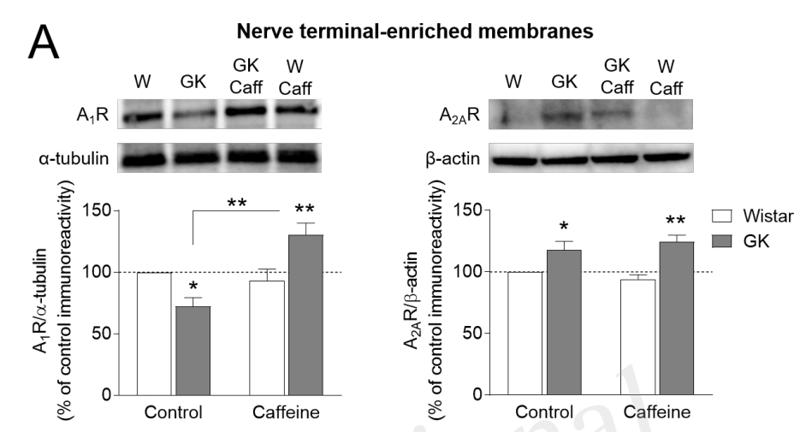ADORA1 Antibody - #DF4905
| Product: | ADORA1 Antibody |
| Catalog: | DF4905 |
| Description: | Rabbit polyclonal antibody to ADORA1 |
| Application: | WB |
| Cited expt.: | WB |
| Reactivity: | Human, Rat |
| Prediction: | Pig, Horse, Rabbit |
| Mol.Wt.: | 37 KD; 37kD(Calculated). |
| Uniprot: | P30542 |
| RRID: | AB_2837258 |
Related Downloads
Protocols
Product Info
*The optimal dilutions should be determined by the end user. For optimal experimental results, antibody reuse is not recommended.
*Tips:
WB: For western blot detection of denatured protein samples. IHC: For immunohistochemical detection of paraffin sections (IHC-p) or frozen sections (IHC-f) of tissue samples. IF/ICC: For immunofluorescence detection of cell samples. ELISA(peptide): For ELISA detection of antigenic peptide.
Cite Format: Affinity Biosciences Cat# DF4905, RRID:AB_2837258.
Fold/Unfold
A1AR; A1R; AA1R; AA1R_HUMAN; Adenosine receptor A1; ADORA 1; ADORA 1; ADORA1; RDC 7; RDC7; Ri;
Immunogens
A synthesized peptide derived from human ADORA1, corresponding to a region within C-terminal amino acids.
- P30542 AA1R_HUMAN:
- Protein BLAST With
- NCBI/
- ExPASy/
- Uniprot
MPPSISAFQAAYIGIEVLIALVSVPGNVLVIWAVKVNQALRDATFCFIVSLAVADVAVGALVIPLAILINIGPQTYFHTCLMVACPVLILTQSSILALLAIAVDRYLRVKIPLRYKMVVTPRRAAVAIAGCWILSFVVGLTPMFGWNNLSAVERAWAANGSMGEPVIKCEFEKVISMEYMVYFNFFVWVLPPLLLMVLIYLEVFYLIRKQLNKKVSASSGDPQKYYGKELKIAKSLALILFLFALSWLPLHILNCITLFCPSCHKPSILTYIAIFLTHGNSAMNPIVYAFRIQKFRVTFLKIWNDHFRCQPAPPIDEDLPEERPDD
Predictions
Score>80(red) has high confidence and is suggested to be used for WB detection. *The prediction model is mainly based on the alignment of immunogen sequences, the results are for reference only, not as the basis of quality assurance.
High(score>80) Medium(80>score>50) Low(score<50) No confidence
Research Backgrounds
Receptor for adenosine. The activity of this receptor is mediated by G proteins which inhibit adenylyl cyclase.
Cell membrane>Multi-pass membrane protein.
Belongs to the G-protein coupled receptor 1 family.
Research Fields
· Environmental Information Processing > Signal transduction > cGMP-PKG signaling pathway. (View pathway)
· Environmental Information Processing > Signal transduction > cAMP signaling pathway. (View pathway)
· Environmental Information Processing > Signal transduction > Sphingolipid signaling pathway. (View pathway)
· Environmental Information Processing > Signaling molecules and interaction > Neuroactive ligand-receptor interaction.
· Human Diseases > Substance dependence > Morphine addiction.
· Organismal Systems > Endocrine system > Regulation of lipolysis in adipocytes.
· Organismal Systems > Endocrine system > Renin secretion.
References
Application: WB Species: rat Sample: hippocampus
Restrictive clause
Affinity Biosciences tests all products strictly. Citations are provided as a resource for additional applications that have not been validated by Affinity Biosciences. Please choose the appropriate format for each application and consult Materials and Methods sections for additional details about the use of any product in these publications.
For Research Use Only.
Not for use in diagnostic or therapeutic procedures. Not for resale. Not for distribution without written consent. Affinity Biosciences will not be held responsible for patent infringement or other violations that may occur with the use of our products. Affinity Biosciences, Affinity Biosciences Logo and all other trademarks are the property of Affinity Biosciences LTD.
